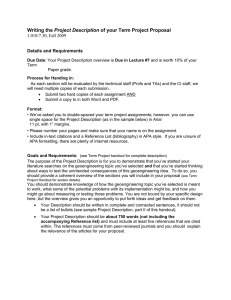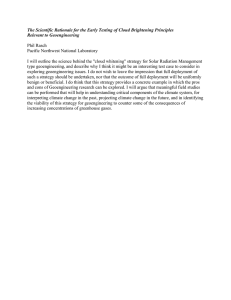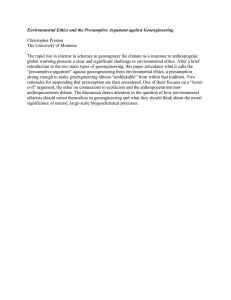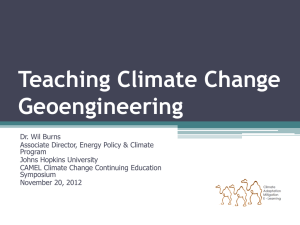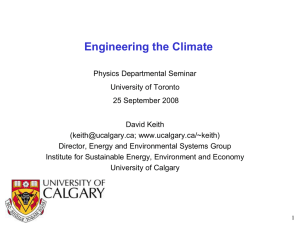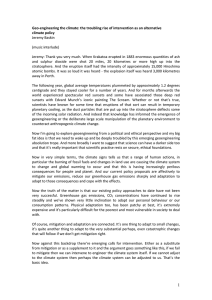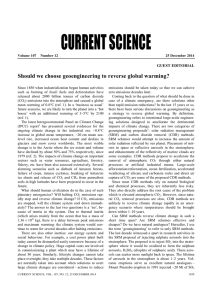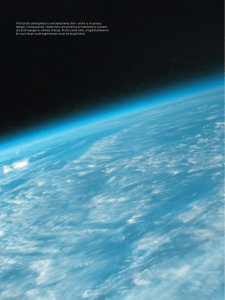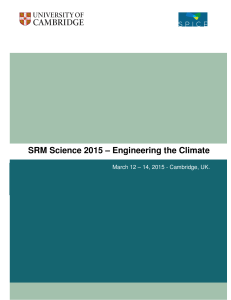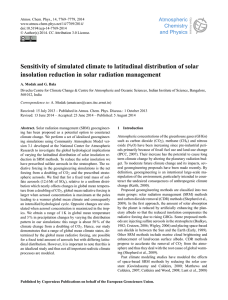12.085 Seminar in Environmental Science
advertisement
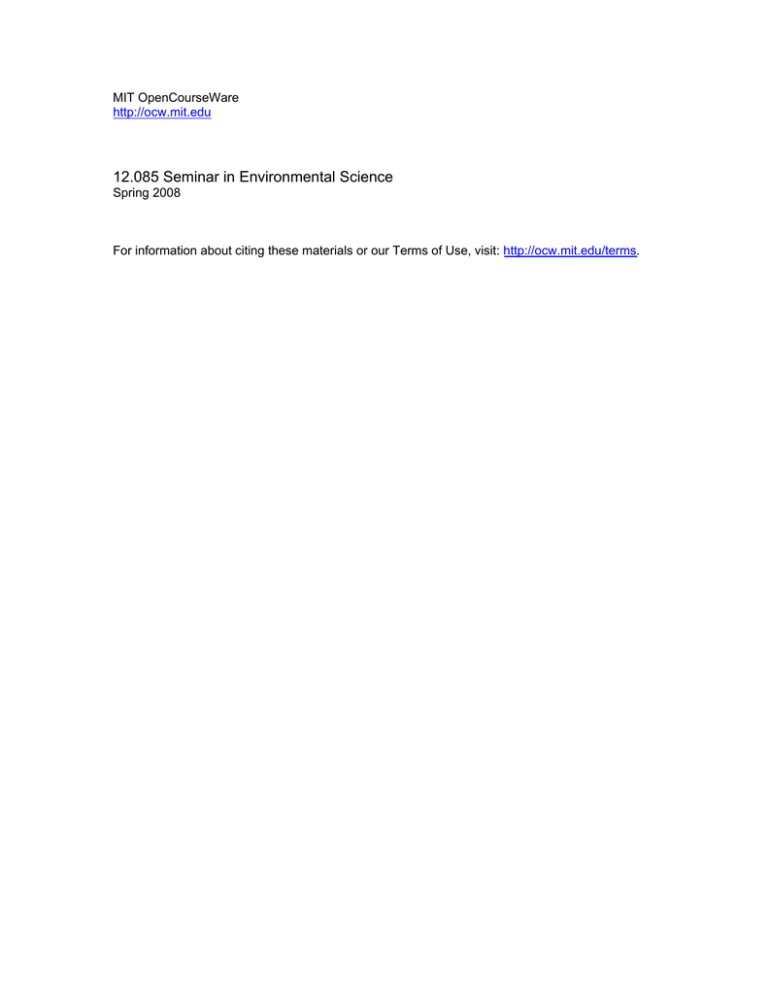
MIT OpenCourseWare http://ocw.mit.edu 12.085 Seminar in Environmental Science Spring 2008 For information about citing these materials or our Terms of Use, visit: http://ocw.mit.edu/terms. Jessica Stanley 2/18/08 12.085 Week 2: Keith 2000 In Keith’s review of geoengineering and the climate, he first defines geoengineering as “the intentional large-scale manipulation of the environment, particularly manipulation that is intended to reduce undesired anthropogenic climate change” (245). He then summarizes the history of weather control and research into controlling climate, starting 1950s and 60s through to work in the 90s, and then gives a summary of the different types of geoengineering which are currently getting attention including albedo modification through injection of aerosols into the upper atmosphere and placement of lenses or reflective material in space, carbon capture in terrestrial and oceanic ecosystem, and sequestration. He then covered a brief evaluation of the more social aspects, the economics, risks, and politics. One type of geoengineering which I had heard about before, but was interested to hear more about was capture in terrestrial ecosystems. I found it interesting that croplands, lands we already modify, are actually more efficient at capture than forest lands. The idea of genetically modifying organisms to make capture more efficient is another direction of research which could be really interesting. Keith also states that “approximately one hectare per capita would be required for an energy system based entirely on terrestrial carbon fixation, roughly equivalent to the current use of cropland and managed forest combined” (266). Does this mean that with more controlled management of this land we could produce enough energy without fossil fuels? Is it possible to use land both for energy and for other uses like food production? I also wonder what effects would have to be considered in terms of soil and nutrient management. The other thing which caught my attention was in the political and social aspects of what happens if one day we have enough control of climate to create an “optimum global climate”. Who gets to choose what is optimum? To some extent I think that is what is so morally confusing about geoengineering, if we are not just trying to reverse the changes we have already made, who gets to decide what is best for the planet?
